Hurricane-Proofing Your Business: Essential Tips for Florida Property Owners
See How We're Different
or call us: 954-233-0733
Hurricanes can wreak havoc on businesses, causing extensive damage and disrupting operations. As a Florida property owner, it is crucial to understand the
risks hurricanes pose to your business and take the necessary steps to protect it. In this article, we will explore the impact of hurricanes on businesses, evaluating vulnerabilities, preparing for hurricane season, protecting your physical property, dealing with insurance considerations, and ensuring post-hurricane recovery and business continuity.
Understanding the Risks of Hurricanes for Businesses
Hurricanes can have a significant impact on Florida businesses, leading to financial losses, property damage, and even closure. The destructive power of hurricanes, characterized by strong winds, storm surges, and heavy rainfall, has the potential to devastate coastal communities and inland areas alike.
Businesses may face challenges such as power outages, flooding, supply chain disruptions, employee safety concerns, and damage to physical assets. Understanding these risks is the first step towards effective hurricane-proofing.
The Impact of Hurricanes on Florida Businesses
Florida has experienced several devastating hurricanes in the past, such as Hurricane Andrew in 1992 and Hurricane Irma in 2017. These storms caused billions of dollars in damages and severely affected businesses across the state.
The impact of hurricanes on businesses can range from property damage and inventory loss to business interruption and reputational damage. Many businesses struggle to recover after a hurricane, sometimes leading to permanent closures.
For example, after Hurricane Andrew, numerous businesses in South Florida were forced to shut down permanently due to extensive damage and financial strain. The destruction caused by the hurricane left many business owners with no choice but to close their doors, resulting in job losses and economic instability in the region.
Similarly, Hurricane Irma wreaked havoc on Florida's tourism industry, which heavily relies on visitors and revenue from attractions and hotels. The storm's impact on popular tourist destinations like Miami Beach and the Florida Keys led to a significant decline in tourism, causing businesses to suffer from a lack of customers and revenue.
Evaluating Your Business's Vulnerability to Hurricanes
Before you can effectively hurricane-proof your business, it is crucial to assess its vulnerability to potential hurricane damage. Consider factors such as location, building structure, proximity to water bodies, and historical hurricane patterns.
Analyze your business's physical assets, including buildings, equipment, inventory, and data storage. Identify weak points that may be susceptible to hurricane damage, such as roofs, windows, and entry points.
Furthermore, it is essential to evaluate the potential impact of business interruption on your operations and revenue. Assess the critical functions and dependencies within your business to identify areas of vulnerability.
For instance, a restaurant located in a coastal area may face a higher risk of flooding and property damage during a hurricane compared to a business situated further inland. The restaurant owner should consider implementing measures such as flood barriers, reinforced windows, and a backup power generator to minimize potential losses and ensure business continuity.
Additionally, businesses that heavily rely on a single supplier or have a complex supply chain may face disruptions in the event of a hurricane. It is crucial to assess the resilience of your supply chain and explore alternative options to mitigate potential disruptions.
By thoroughly evaluating your business's vulnerability to hurricanes, you can develop a comprehensive hurricane preparedness plan that addresses potential risks and safeguards your operations.
Preparing Your Business for Hurricane Season
Preparation is key when it comes to mitigating the impact of hurricanes on your business. With a comprehensive hurricane preparedness plan and essential supplies, you can better protect your employees, assets, and operations.
As hurricane season approaches, it is crucial for businesses to develop a comprehensive hurricane preparedness plan. This plan should be a well-documented strategy that outlines the steps your business will take before, during, and after a hurricane. By having a clear plan in place, you can minimize the potential damage and disruption caused by these powerful storms.
Developing a Comprehensive Hurricane Preparedness Plan
A well-designed hurricane preparedness plan should cover various aspects of your business operations. It should include evacuation procedures, employee communication protocols, backup power solutions, and emergency contact information. By addressing these key areas, you can ensure that your business is well-prepared to handle the challenges posed by a hurricane.
One important aspect of your hurricane preparedness plan is to designate a team responsible for implementing and updating the plan regularly. This team should consist of individuals who are knowledgeable about the specific needs and requirements of your business. By having a dedicated team in place, you can ensure that your hurricane preparedness plan remains up to date and effective.
Furthermore, it is essential to ensure that all employees are familiar with the hurricane preparedness plan. Conducting regular training exercises and simulations can help familiarize employees with emergency procedures and test the effectiveness of your preparedness efforts. By involving your employees in the planning process, you can create a culture of preparedness within your organization.
Essential Supplies for Hurricane Preparedness
In addition to having a comprehensive hurricane preparedness plan, it is crucial to stock up on essential supplies well in advance of hurricane season. These supplies can help ensure the safety and well-being of your employees during and after a hurricane.
Some essential supplies to consider include first aid kits, flashlights, batteries, non-perishable food, water, and blankets. These items can provide basic necessities in the event of power outages or other disruptions caused by a hurricane. It is important to have an adequate supply of these items to sustain your employees and maintain their comfort during challenging times.
When preparing for a hurricane, it is also important to consider the specific needs of your employees. Some individuals may require medication or have mobility limitations. Making provisions for these special requirements can help ensure the safety and well-being of all employees during a hurricane.
Additionally, it is crucial to safeguard important documents such as insurance policies, contracts, and financial records. Keeping these documents in a secure, waterproof location can help protect them from damage caused by flooding or other water-related incidents. It is also advisable to back up digital files and store them off-site or in the cloud to ensure their safety and accessibility.
In conclusion, preparing your business for hurricane season requires a comprehensive approach. By developing a well-documented hurricane preparedness plan and stocking up on essential supplies, you can better protect your employees, assets, and operations. Remember to involve your employees in the planning process and conduct regular training exercises to ensure everyone is prepared for the challenges that hurricanes may bring.
Protecting Your Physical Property from Hurricane Damage
When it comes to hurricane-proofing your business, safeguarding your physical property is crucial. Implementing structural improvements and taking proactive measures to protect business assets can significantly reduce the risk of damage.
As hurricanes continue to increase in intensity and frequency, it is essential to invest in structural improvements that enhance the resilience of your buildings against these powerful storms. Reinforcing roofs, windows, and doors to withstand wind loads is a critical step in ensuring the safety of your property. By using hurricane straps or clips, you can strengthen the connection between the roof and the walls, making it less likely for the roof to be torn off during a hurricane.
Another effective measure is to install hurricane shutters or impact-resistant glass. These protective barriers can prevent flying debris from shattering windows and causing further damage to your property. Impact-resistant glass is designed to withstand high winds and flying objects, providing an added layer of protection.
Regular inspections of your property are essential to identify and address any existing vulnerabilities. Clearing gutters and drains to prevent water accumulation is crucial, as excessive water can lead to flooding and structural damage. Additionally, evaluating your property's landscape is important to ensure that there are no loose branches or trees that could pose a risk during high winds. Trimming trees and removing dead branches can minimize the potential for damage.
Protecting Business Assets During a Hurricane
In addition to structural enhancements, taking steps to protect valuable assets during a hurricane is crucial. Securing equipment and loose items that could become projectiles in high winds is essential to prevent damage to your property and ensure the safety of employees and customers. Anchoring equipment and furniture to the floor or walls can help prevent them from being tossed around during a storm.
If your business is located in a flood-prone area, it is important to consider moving critical equipment to higher levels or relocating them temporarily. Elevating equipment can help prevent water damage and ensure that your business can resume operations quickly after the storm passes.
Backing up digital data regularly and storing it off-site or in the cloud is essential to prevent data loss during a hurricane or other disasters. In the event of physical damage to your property, having data stored in a secure location ensures that you can recover essential information and continue business operations. Investing in surge protectors and uninterrupted power supply systems can also safeguard sensitive electronics from power surges and outages caused by the storm.
Remember, protecting your physical property and business assets from hurricane damage requires careful planning and proactive measures. By implementing structural improvements, securing equipment, and backing up data, you can minimize the impact of hurricanes on your business and ensure its continuity in the face of adversity.
Insurance Considerations for Hurricane-Prone Businesses
Insurance coverage plays a crucial role in the recovery process after a hurricane. Understanding your policy and navigating the claims process effectively can expedite the restoration of your business.
Understanding Your Insurance Coverage
Contact your insurance provider to review your existing policy and ensure it provides adequate coverage for hurricane-related damages. Understand the various types of coverage, including property insurance, business interruption insurance, and flood insurance.
Consult with an insurance professional to identify any gaps in coverage and explore options for additional protection. Consider factors such as deductibles, coverage limits, and exclusions when assessing your insurance needs.
Navigating the Claims Process Post-Hurricane
In the aftermath of a hurricane, it is essential to initiate the claims process promptly. Document the damage thoroughly by taking photographs and videos. Keep records of any expenses incurred as a result of the hurricane, such as cleanup costs or temporary relocation expenses.
Work closely with your insurance provider to submit a comprehensive claim. Keep track of all communication, including dates, times, and individuals involved. Be prepared for the claims process to take time, as insurers may be overwhelmed with claims during widespread hurricane events.
Post-Hurricane Recovery and Business Continuity
Once the storm has passed, the focus shifts to assessing damage, initiating cleanup efforts, and ensuring business continuity in the face of challenges.
Assessing Damage and Initiating Cleanup
Conduct a thorough assessment of your property to determine the extent of the damage. Address immediate safety concerns and prioritize repairs based on the impact on your operations.
Engage professional contractors for specialized cleanup and restoration tasks. Ensure that the team you hire is reputable and experienced in handling post-hurricane recovery efforts. Follow local guidelines for debris removal and disposal.
Strategies for Business Continuity After a Hurricane
Develop a business continuity plan that outlines steps for resuming operations and recovering from a hurricane. This plan should include provisions for temporary relocation, alternative suppliers, and communication strategies to keep stakeholders informed.
Communicate with employees, customers, and suppliers promptly. Provide regular updates on your business's recovery progress and any changes to operations. Consider the emotional well-being of your employees during this challenging time, offering support and resources as needed.
By understanding the risks, adequately preparing, protecting physical property, considering insurance coverage, and planning for post-hurricane recovery, you can enhance the resilience of your business in the face of hurricanes. Effectively hurricane-proofing your Florida property ensures that your business can weather the storm and continue to thrive.
Business Hours
Friday 8:30 AM–5 PM
Saturday Closed
Sunday Closed
Monday 8:30 AM–5 PM
Tuesday 8:30 AM–5 PM
Wednesday 8:30 AM–5 PM
Thursday 8:30 AM–5 PM
Services
Recent News
All Rights Reserved | Bellken Insurance Group | Privacy Policy | Legal Disclaimer








